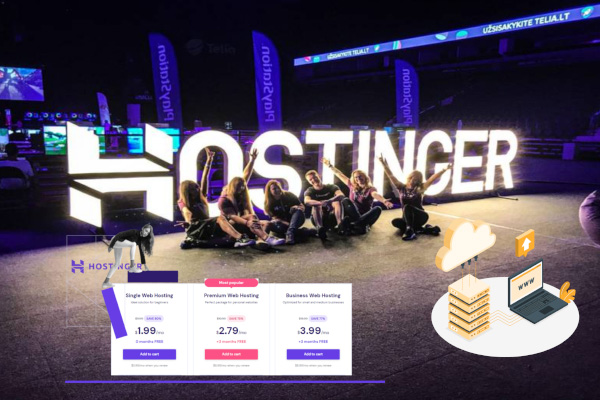Overview
In today’s rapidly evolving job market, remote work has become more prevalent than ever. With the shift towards a digital-first approach, the demand for specific soft skills in remote job candidates has surged. While technical skills remain important, employers are increasingly valuing soft skills that ensure seamless collaboration and productivity in a virtual environment. This article delves into the top five high-demand soft skills that can significantly enhance your chances of securing a remote job.
1. Communication
1.1 The Importance of Clear Communication
Effective communication is the cornerstone of success in any remote job. In the absence of face-to-face interactions, the ability to convey information clearly and concisely becomes paramount. This includes both written and verbal communication.
1.2 Written Communication
In a remote setting, clear written communication is essential. Emails, instant messages, and project management tools are primary modes of interaction. Thus, mastering the art of concise and coherent writing can make a significant difference. Avoid jargon and be direct to ensure your message is understood correctly.
1.3 Verbal Communication
Verbal communication also plays a crucial role. Virtual meetings and video conferences are commonplace in remote jobs. Being able to articulate your thoughts clearly and engage in meaningful discussions is vital. Active listening, another facet of communication, ensures you understand others’ viewpoints and respond appropriately.
1.4 Improving Communication Skills
Developing strong communication skills in a remote job environment involves regular practice and feedback. Utilize online courses, join public speaking clubs, or engage in writing workshops to hone these skills.
Future of Machine Learning
2. Time Management
2.1 Structuring Your Day
Time management is another critical soft skill in remote jobs. Without the structure of a traditional office environment, remote workers must independently manage their schedules and tasks. This requires a high degree of self-discipline and organization.
2.2 Utilizing Digital Tools
Creating a daily routine and sticking to it is a fundamental step in effective time management. Utilize digital tools like calendars, task managers, and productivity apps to keep track of deadlines and priorities. Break down larger tasks into smaller, manageable segments to avoid feeling overwhelmed.
2.3 Prioritizing Tasks
Setting clear goals and deadlines is crucial. Prioritize tasks based on their importance and urgency. The Eisenhower Matrix, which categorizes tasks into four quadrants based on these criteria, can be a useful tool. By focusing on high-priority tasks first, you ensure that critical work is completed on time
2.4 Minimizing Distractions
Avoiding distractions is particularly challenging in a remote job setting. Designate a specific workspace and limit access to non-work-related activities during work hours. Techniques like the Pomodoro Technique, which involves working in focused intervals followed by short breaks, can also enhance productivity.
3. Self-Motivation
3.1 Finding Your Intrinsic Motivation
Self-motivation is indispensable for thriving in a remote job. Without the immediate presence of supervisors and colleagues, remote workers must drive themselves to stay productive and meet deadlines.
3.2 Maintaining a Positive Mindset
Intrinsic motivation, or the internal drive to achieve goals, is a key factor. Identify what excites and motivates you about your work. Setting personal milestones and rewarding yourself upon achieving them can boost motivation.
3.3 Connecting with a Support Network
Maintaining a positive mindset is equally important. Remote work can sometimes feel isolating. Regularly reminding yourself of the benefits, such as flexibility and the opportunity to work from anywhere, can help maintain enthusiasm.
3.4 Staying Engaged
Connecting with a network of remote workers or joining online communities can provide support and encouragement. Sharing experiences and challenges with others in similar situations can reinvigorate your motivation and offer new perspectives.
4. Adaptability
4.1 Embracing Change
In the dynamic world of remote work, adaptability is a prized soft skill. The ability to adjust to new tools, processes, and environments is essential. Remote jobs often involve working across different time zones, cultural backgrounds, and technological platforms.
4.2 Learning and Development
Being open to learning and development is a hallmark of adaptability. Stay updated with the latest trends and technologies in your field. Participating in online courses, webinars, and workshops can enhance your skills and keep you relevant in the job market.
4.3 Flexibility in Work Practices
Flexibility in work practices is also crucial. Remote work may require unconventional working hours or adapting to different communication styles. Being open to these changes and willing to adjust can make you a valuable asset to any remote team.
4.4 Problem-Solving Skills
Problem-solving skills are closely linked to adaptability. The ability to think on your feet and find creative solutions to unexpected challenges is vital. Cultivating a proactive approach to problem-solving ensures that you can handle any situation that arises in a remote job.
5. Collaboration
5.1 Utilizing Virtual Tools
Effective collaboration is essential in remote jobs, despite the physical distance between team members. The ability to work well with others, share ideas, and contribute to a common goal is highly valued.
5.2 Building Strong Relationships
Virtual collaboration tools like Slack, Microsoft Teams, and Zoom facilitate seamless communication and project management. Familiarize yourself with these tools and utilize their features to enhance teamwork. Regularly check in with colleagues, participate in virtual meetings, and contribute to group discussions.
5.3 Establishing Trust and Rapport
Building strong relationships with team members is crucial. Establishing trust and rapport can lead to more effective collaboration. Take the time to understand your colleagues’ strengths, weaknesses, and working styles. Offering support and showing appreciation can foster a positive team environment.
5.4 Conflict Resolution
Conflict resolution is another important aspect of collaboration. Disagreements are inevitable, but handling them constructively is key. Practice active listening, empathy, and diplomacy to resolve conflicts amicably. Being open to feedback and willing to compromise ensures that the team remains cohesive and productive.
Conclusion
In conclusion, developing these five high-demand soft skills can significantly enhance your prospects of securing a remote job. By honing your communication, time management, self-motivation, adaptability, and collaboration skills, you position yourself as a valuable candidate in the competitive remote job market. Embrace these skills and continuously strive to improve them to succeed in your remote career.
FAQs
Q.1 Why is communication so important in remote jobs?
Communication is crucial in remote jobs because it ensures clear understanding and collaboration among team members. Effective communication helps prevent misunderstandings, aligns goals, and fosters a productive work environment despite the physical distance.
Q.2 How can I improve my time management skills for remote work?
Improving time management skills involves creating a structured routine, using digital productivity tools, setting clear goals and priorities, and minimizing distractions. Techniques like the Pomodoro Technique can also enhance focus and productivity.
Q.3 What are some ways to stay self-motivated while working remotely?
Staying self-motivated in a remote job involves setting personal milestones, maintaining a positive mindset, connecting with a network of remote workers, and regularly reminding yourself of the benefits of remote work. Identifying what excites and motivates you about your work can also boost motivation.
Q.4 How can I become more adaptable in a remote work environment?
Becoming more adaptable involves staying updated with industry trends and technologies, being open to new work practices and schedules, and developing strong problem-solving skills. Participating in online courses and workshops can also enhance your adaptability.
Q.5 What tools can help with remote collaboration?
Tools like Slack, Microsoft Teams, and Zoom facilitate seamless communication and project management in remote jobs. Familiarize yourself with these tools and utilize their features to enhance teamwork and collaboration. Regularly check in with colleagues, participate in virtual meetings, and contribute to group discussions to build strong relationships and effective collaboration.










1 thought on “5 High-Demand Soft Skills in a Remote Job”
Pingback: Why LinkedIn Profile Is Essential in This Modern Era - Study Guide Courses